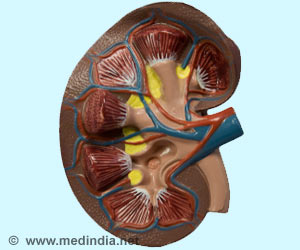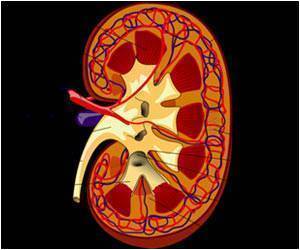Highlights:
- An analysis found that the children with chronic kidney disease had low IQ level compared to normal children
- The affected children had problems in reasoning, academics, visual and memory power
- The IQ level was less in children on dialysis compared to those with mild stage kidney disease and kidney transplants
Kerry Chen, MBBS (The Centre for Kidney Research, University of Sydney, in Australia) and her colleagues published their studies about the academic and cognitive outcomes in children and adolescents with CKD. The analysis had 34 studies on 3000 patients who were below 21 years.
The analysis showed that the neurocognitive and academic outcomes of children with CKD were below average. When the IQ level was compared with normal population, the average difference was -10.5 for all CDK stages, -9.39 for mild-to-moderate stage CKD patients, -11.2 for patients who underwent a kidney transplant and it was -16.2 for those who were on dialysis. The direct comparisons showed that individuals with mild-to-moderate stage CKD and those who received kidney transplants had 11.2 and 10.1 IQ points higher compared to patients on dialysis. Children with CKD also scored less in academic tests related to reading, mathematics and spelling.
"In translating our findings to clinical practice, this research provides relevant information on the areas of need--for example, working memory and mathematics--for which children with CKD may need guidance, practice and assistance, particularly for children on dialysis," said Dr. Chen. "It also suggests hypotheses for why the overall intellectual and educational outcomes of children with CKD are reduced compared with the general population, and how best to prevent deficits."
Lori Hartwell, Founder and President of the Renal Support Network had suffered from kidney disease since 2 years of her age, and she says that during hemodialysis she had experienced poor cognition and also had difficulty in retaining information. Studies have proved that the poor cognitive function was associated with the solute and fluid shifts during hemodialysis
Chronic Kidney Disease
Chronic Kidney Disease is the gradual loss of the kidney function and is also known as chronic kidney failure. For the past two decades, incidence of CKD is steadily increased mainly affecting the poor and ethnic minority children. CKD in children leads to cardiovascular problems.The common symptoms of CKD in children are blood in urine, stunted growth, bone pain, vomiting,high blood pressure, decreased urine output, fatigue, anemia.
- Kerry Chen, Madeleine Didsbury, Anita van Zwieten, Martin Howell, Siah Kim, Allison Tong, Kirsten Howard, Natasha Nassar, Belinda Barton, Suncica Lah, Jennifer Lorenzo, Giovanni Strippoli, Suetonia Palmer, Armando Teixeira-Pinto, Fiona Mackie, Steven McTaggart, Amanda Walker, Tonya Kara,
Source-Medindia
















